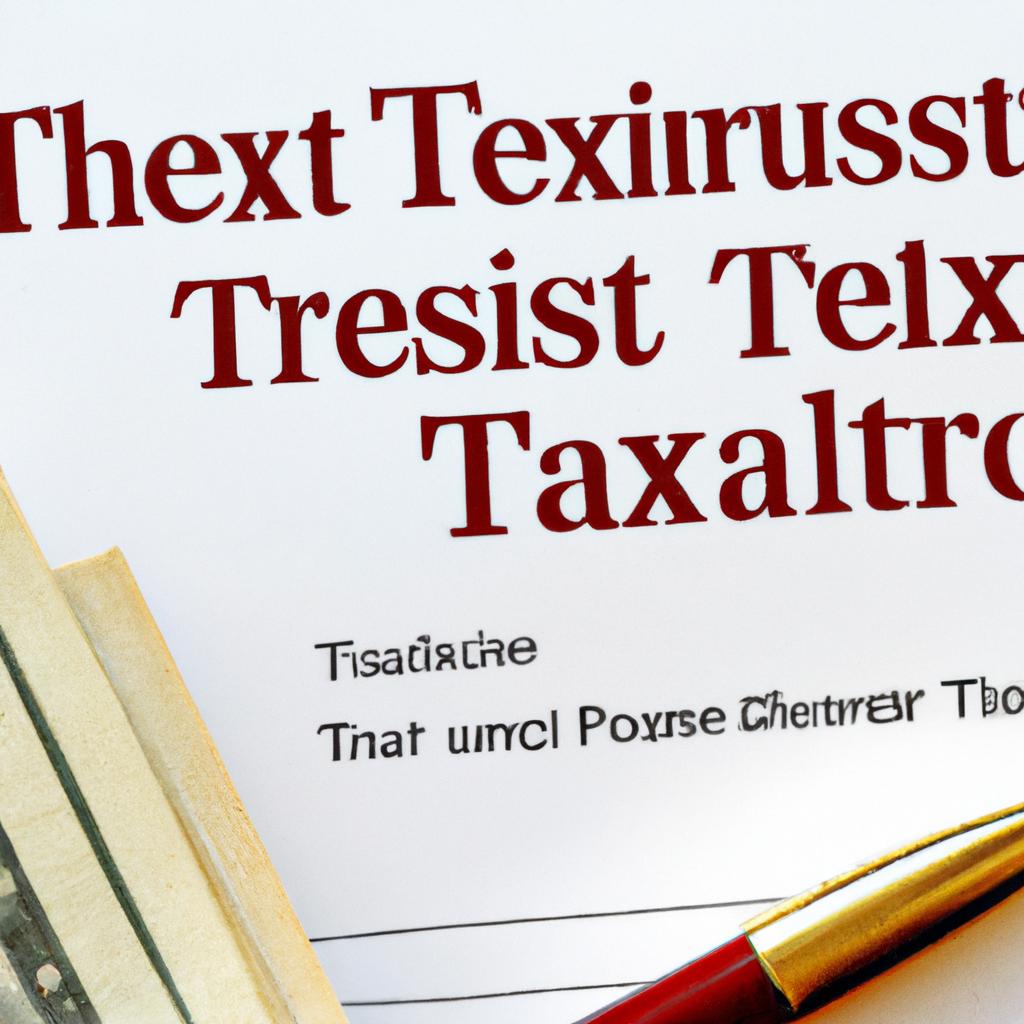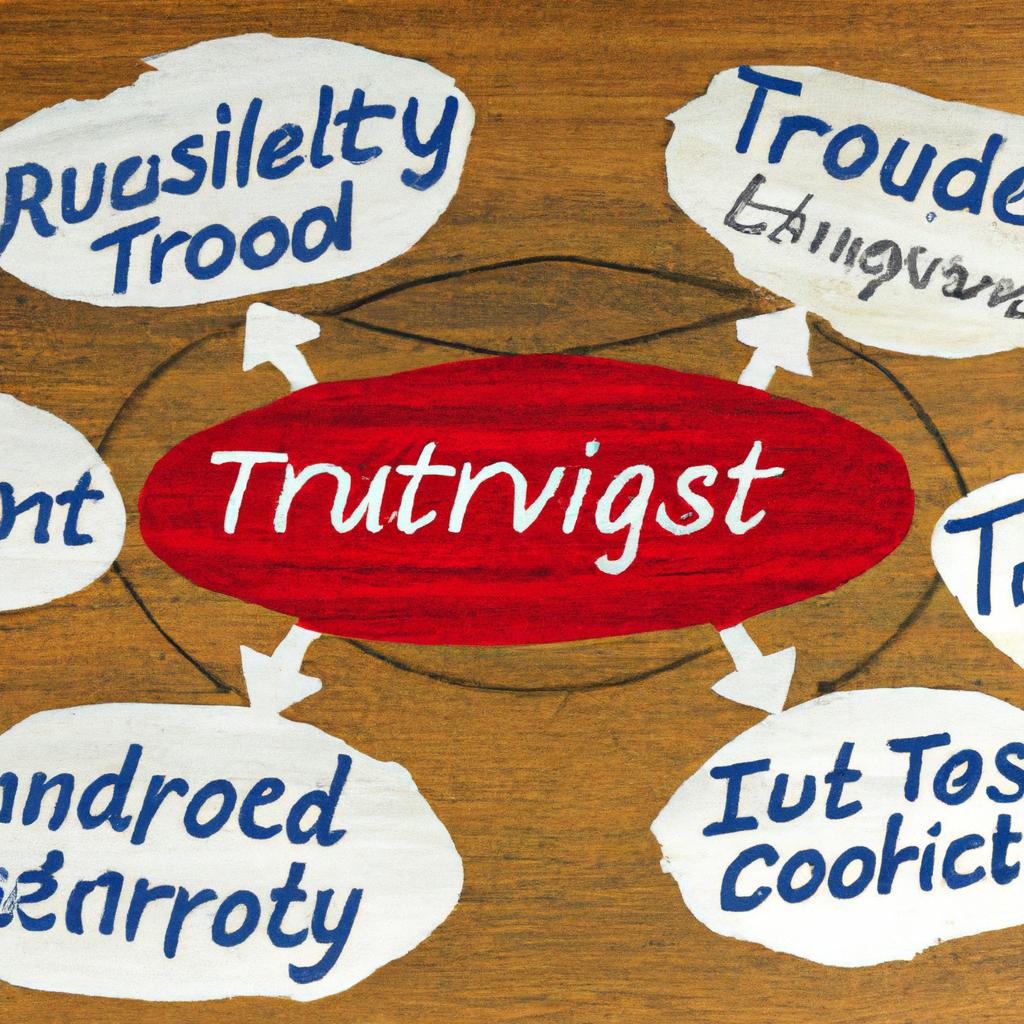As experienced legal professionals at Morgan Legal Group in New York City, we understand the importance of careful estate planning to protect your assets and provide for your loved ones. Among the variety of tools available, establishing a trust can offer numerous benefits and serve as a critical component in your overall estate plan. In this article, we will delve into the reasons why setting up a trust may be a wise decision for ensuring the security and efficient distribution of your assets.
Reasons for Establishing a Trust to Protect Assets and Avoid Probate Proceedings
One significant reason to establish a trust is to protect your assets from potential creditors and lawsuits. By placing your assets into a trust, you can shield them from outside threats and ensure that they are preserved for your intended beneficiaries. This protection can be invaluable in safeguarding your hard-earned wealth and providing for your loved ones in the future.
Another key reason for establishing a trust is to avoid the lengthy and costly probate process. Probate proceedings can tie up your assets for months or even years, leading to unnecessary delays and expenses for your heirs. By creating a trust, you can transfer your assets directly to your beneficiaries upon your passing, bypassing probate entirely. This streamlined approach not only saves time and money but also provides a more efficient and private way to distribute your assets according to your wishes.
Benefits of Establishing a Trust for Estate Planning and Tax Purposes
Establishing a trust can provide numerous benefits for estate planning and tax purposes. One of the key advantages of setting up a trust is the ability to avoid probate, which can be a lengthy and expensive process. By transferring assets into a trust, you can ensure that your beneficiaries receive their inheritance without the delays and costs associated with probate. This can help to streamline the distribution of your assets and provide peace of mind for your loved ones.
Additionally, trusts can offer valuable tax benefits for both the grantor and the beneficiaries. Certain types of trusts, such as irrevocable life insurance trusts, can help to minimize estate taxes and ensure that more of your assets are passed on to your heirs. By working with an experienced estate planning attorney, you can determine the best type of trust for your unique situation and maximize the tax advantages available to you.

Importance of Establishing a Trust to Ensure Privacy and Control Over Asset Distribution
When it comes to ensuring privacy and control over asset distribution, establishing a trust is crucial. By setting up a trust, you can designate specific beneficiaries for your assets and dictate how and when those assets will be distributed. This level of control allows you to protect your assets and ensure that they are distributed according to your wishes.
Additionally, establishing a trust can help to minimize estate taxes and avoid the probate process. By placing your assets in a trust, you can potentially reduce the tax burden on your estate and expedite the distribution of your assets to your beneficiaries. This can provide peace of mind knowing that your assets are protected and will be distributed efficiently and according to your instructions.

Considerations When Establishing a Trust, Including Choosing the Right Trustee and Understanding Legal Implications
| Name | Role | Experience | Contact |
|---|---|---|---|
| John Smith | Trustee | 20 years | jsmith@morganlegalgroup.com |
| Jane Doe | Attorney | 15 years | jdoe@morganlegalgroup.com |
When establishing a trust, it is crucial to carefully consider the selection of the trustee. The trustee plays a vital role in managing and distributing the assets in the trust, so it is essential to choose someone who is trustworthy, competent, and financially responsible. It is also important to select a trustee who will act in the best interests of the beneficiaries and follow the terms of the trust.
Furthermore, it is essential to understand the legal implications of establishing a trust. Trusts are legal entities that can have tax implications, so it is crucial to seek advice from a qualified attorney to ensure that the trust is set up correctly and complies with all relevant laws and regulations. Additionally, understanding the legal responsibilities and duties of the trustee is vital to ensure that the trust operates smoothly and in accordance with the intentions of the grantor.
Q&A
Q: Why should I consider establishing a trust?
A: Establishing a trust can help you control how your assets are distributed, even after you pass away.
Q: Can a trust protect my assets from creditors?
A: Yes, a properly structured trust can help shield your assets from potential creditors.
Q: What are the tax benefits of setting up a trust?
A: Trusts can offer tax advantages, such as minimizing estate taxes and capital gains taxes.
Q: How can a trust provide for my loved ones in the future?
A: By creating a trust, you can ensure that your beneficiaries are financially supported and taken care of according to your wishes.
Q: Can a trust help me avoid probate?
A: Yes, trusts can help your assets avoid probate, saving time and money for your loved ones.
Q: What is the main reason to establish a trust?
A: The main reason to establish a trust is to have more control over your assets and how they are distributed, both during your lifetime and after you pass away.
In Retrospect
In conclusion, establishing a trust can provide numerous benefits and serve as a crucial tool for achieving your goals in estate planning and asset protection. By carefully considering your specific needs and circumstances, you can create a trust that will safeguard your assets, provide for your loved ones, and ensure your wishes are carried out according to your wishes. Whether you are looking to avoid probate, protect your assets from creditors, or simply maintain control over your wealth, a trust can offer a flexible and effective solution. So, take the time to explore the possibilities and consult with a trusted advisor to determine if establishing a trust is the right move for you. Trust in the process, and let your legacy live on.
 A trust is a legal arrangement that allows a person, known as the grantor or settlor, to transfer their assets to a trustee who manages and distributes them according to their wishes. Trusts can be an effective estate planning tool, providing numerous benefits and reasons to establish one. In this article, we will explore the top reasons to establish a trust and why it may be a wise decision for you and your loved ones.
A trust is a legal arrangement that allows a person, known as the grantor or settlor, to transfer their assets to a trustee who manages and distributes them according to their wishes. Trusts can be an effective estate planning tool, providing numerous benefits and reasons to establish one. In this article, we will explore the top reasons to establish a trust and why it may be a wise decision for you and your loved ones.
1. Avoiding Probate
One of the most significant reasons to establish a trust is to avoid the lengthy and expensive probate process. Probate is the legal process of distributing a deceased’s assets and settling their debts. It can be a time-consuming and costly process, often taking months or even years to complete. With a trust, your assets are distributed according to your wishes without going through probate, saving your loved ones time and money.
2. Control and Flexibility
Establishing a trust allows you to maintain control over your assets even after your passing. You can specify how and when your assets should be distributed to your beneficiaries, whether it be immediately, at a certain age, or for a specific purpose. This level of control allows you to protect your assets from irresponsible spending or potential creditors, ensuring they are used for the intended purpose.
3. Privacy
The details of a trust are not made public, unlike a will, which becomes a public record after going through probate. This means that your assets, beneficiaries, and the terms of the trust remain private. If you value your privacy and would prefer to keep your estate plans confidential, a trust may be the right choice for you.
4. Protecting Assets
A trust can also provide protection for your assets from potential lawsuits, creditors, or divorce. By placing your assets in a trust, they are no longer considered part of your personal estate, making them more difficult for creditors to reach. This protection can be especially important for individuals with high-risk professions or those who want to safeguard their assets for future generations.
5. Tax Planning
Trusts can also be utilized for tax planning purposes, providing significant tax benefits for both the grantor and beneficiaries. For instance, putting your assets in a trust can reduce the size of your taxable estate, reducing the estate tax burden for your loved ones. Additionally, you can establish a trust that allows your beneficiaries to receive income from the trust tax-free.
6. Management of Incapacitation
Establishing a trust can also be beneficial in case of incapacitation. By appointing a trustee to manage your assets and distribute them according to your wishes, you can ensure that your financial affairs are taken care of in the event that you are unable to do so yourself. This eliminates the need for a court-appointed guardian to manage your assets, which can be a costly and cumbersome process.
7. Special Needs Planning
If you have a loved one with special needs, a trust can be an excellent tool for providing for their care while still preserving their eligibility for government benefits. By creating a special needs trust, you can ensure that your loved one has access to the necessary funds for their care without jeopardizing their eligibility for programs like Medicaid or Supplemental Security Income (SSI).
In conclusion, there are numerous reasons to establish a trust, from avoiding probate to protecting your assets and providing for your loved ones. If you are considering creating a trust, it is essential to seek the advice of a qualified estate planning attorney who can guide you through the process and ensure that your wishes are carried out effectively. Your attorney can also help you determine which type of trust is best suited for your unique situation and goals.
Remember, everyone’s circumstances are different, and there is no one-size-fits-all solution when it comes to estate planning. Therefore, it is crucial to carefully consider your options and consult with a professional to make informed decisions that align with your goals and values. With a well-drafted trust in place, you can have peace of mind knowing that your assets, loved ones, and legacy are protected and managed according to your wishes.

